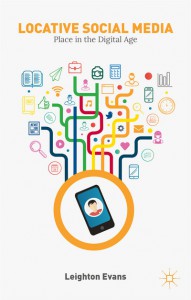Drawing on postcolonial technoscience and particularly the notion of ‘frictions’, Sung-Yueh Perng and Rob Kitchin analyse how solutions are worked up, challenged and changed in civic hacking events. The paper is published in Social & Cultural Geography and is entitled Solutions and frictions in civic hacking: collaboratively designing and building wait time predictions for an immigration office. There are still eprints available for free via the link: http://www.tandfonline.com/eprint/SSWBCcCech3hezdgIFZp/full. For more details about the paper, the abstract is pasted below.
Abstract: Smart and data-driven technologies seek to create urban environments and systems that can operate efficiently and effortlessly. Yet, the design and implementation of such technical solutions are full of frictions, producing unanticipated consequences and generating turbulence that foreclose the creation of friction-free city solutions. In this paper, we examine the development of solutions for wait time predictions in the context of civic hacking to argue that a focus on frictions is important for establishing a critical understanding of innovation for urban everyday life. The empirical study adopted an ethnographically informed mobile methods approach to follow how frictions emerge and linger in the design and production of queue predictions developed through the civic hacking initiative, Code for Ireland. In so doing, the paper charts how solutions have to be worked up and strategies re-negotiated when a shared motivation meets different data sources, technical expertise, frames of understanding, urban imaginaries and organisational practices; and how solutions are contingently stabilised in technological, motivational, spatiotemporal and organisational specificities rather than unfolding in a smooth, linear, progressive trajectory.


